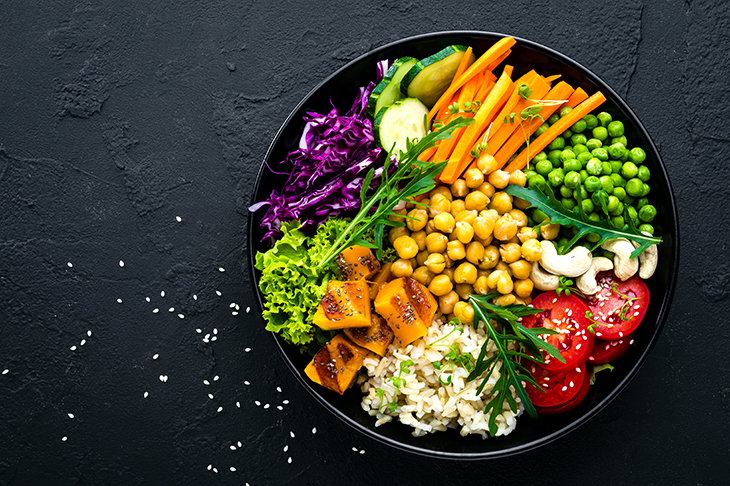It was a clear and icy night at home in Derbyshire last week. I love these times and, before bed, stepped outside to stand on the lawn in the moonless pitch-black and take it in. All at once the dark was pierced with an awful scream. I was not greatly alarmed — the rural night is full of strange noises — but stood there, puzzling out what it might be.
The scream, almost human, was repeated, and its provenance seemed to be moving from one side to the other of the field adjacent to ours. Could it be a fox? Vixens do make some blood-curdling cries during the mating season but does that start as early as January? Or might it be a fox’s victim — a hare or rabbit, perhaps, fighting back as the poor creature was carried off — or even an owl’s prey? Might it be the call of some kind of night-bird? But this was a call I’d never heard from anything with feathers.
I felt curious, but only mildly so. Whatever creature was calling, this was nature calling. Alone in the dark I was standing in, not outside, nature, and in nature another animal screaming but posing no threat to me was not a matter for alarm. Animals kill each other, usually for food.
But it made me think about veganism. I’ve been thinking about veganism a lot recently. We’re told this month is ‘-Veganuary’, and more people than I can remember are toying with the idea, if only temporarily, of not eating meat. From time to time I’ve done so myself. My lodger in the London flat is a serious vegan and I respect him very much for it. Though we carnivores may grumble about veggies and vegans and think them awkward, the fact remains that it’s a carnivore’s world, things are organised to suit meat–eaters, and people who go against that have to put up with endless inconvenience. They are brave.
They also have a point. I cannot pass a lorry full of pigs being carried to the slaughter without wincing. I switched off a radio discussion of slaughterhouses last week, unable to listen. We try (don’t we, most of us?) not to think about the millions of animals being killed each week for our tables; and things we try not to think about are so often things we’re not confident we could justify.
People who take pleasure in confronting vegetarians with whataboutery (‘What about your shoes? That violin music you bought though it’s played on a catgut? And that’s a leather armchair you just sat in, ha ha’ etc) infuriate me. Trying to make the best the enemy of the good often masks our own guilt, and I dare say that in the days of slavery, abolitionists were taunted for using sugar that had been grown in slave plantations.
So my instincts towards veganism are sympathetic. I know and understand the case against using animals for our own gratification; I understand, too, how the logic carries you onward to complete veganism, and I don’t question that logic.
But as I stood there in the dark hearing another creature scream last week, it was a contrary thought that troubled me. A thought, no more. I wouldn’t dignify it with the word ‘argument’, in some ways it was more of a feeling, but it was a strong feeling. Isn’t using animals bound up with needing them, and bound up with them (cows, sheep, horses) needing us? Isn’t mutual need, however red in tooth and claw, something that binds us into nature, makes us humans a kind of animal, living with animals as animals live with us? Might it be an important corrective against the arrogance that goes with believing we are masters of the universe, a race of gods looking down on the world and the natural order — in it but not in the complete sense part of it?
One reason I dare not call this an argument or theory is that our whole evolution as a species seems to point towards that destination. We have so mechanised and specialised and compartmentalised food production that some city people have never even seen a cow face to face, and very few people, urban or rural, have ever visited a slaughterhouse. Maybe that’s what civilisation, what we call human progress, means. Long gone are the days when every family could keep and slaughter their own pig.
Yet if that’s where we’re going, perhaps we should say so: acknowledge it to ourselves. It will be a world in which ‘nature’ is no longer something we’re part of, but something we control. The world will be our garden. The wild will be what we have decided to designate as ‘the wild’. There will be humans, and there will be national parks. Will we still want domestic animals at all, when we have no use for them? Maybe we could keep a few in a zoo, or in ‘farm–experience’ places you could visit.
Shall we let the animals we include in our master-plan hunt and eat each other? Maybe, and we could watch. Or maybe we could require the carnivores among them to eat meat-like proteins manufactured or grown without the infliction of suffering on any other animal. And gradually over the centuries ahead we could turn our world into a planet where we decided these matters.
The irony (as it seems to me) is that vegans and vegetarians have played an early and important — and a very creditable — part in the movement to abolish or limit old-fashioned zoos and animal-inclusive circuses: and I approve of much in that mission. Yet the same thinking may lead in the end towards the establishment of the biggest and most ambitious zoo in all creation. The zoo will be the natural world, and we shall be the zookeepers.
I turned away from those screams in the dark and returned to the warm. The itch to discover, and perhaps intervene and correct or rescue, had left me.
Got something to add? Join the discussion and comment below.
Get 10 issues for just $10
Subscribe to The Spectator Australia today for the next 10 magazine issues, plus full online access, for just $10.
You might disagree with half of it, but you’ll enjoy reading all of it. Try your first month for free, then just $2 a week for the remainder of your first year.















Comments
Don't miss out
Join the conversation with other Spectator Australia readers. Subscribe to leave a comment.
SUBSCRIBEAlready a subscriber? Log in